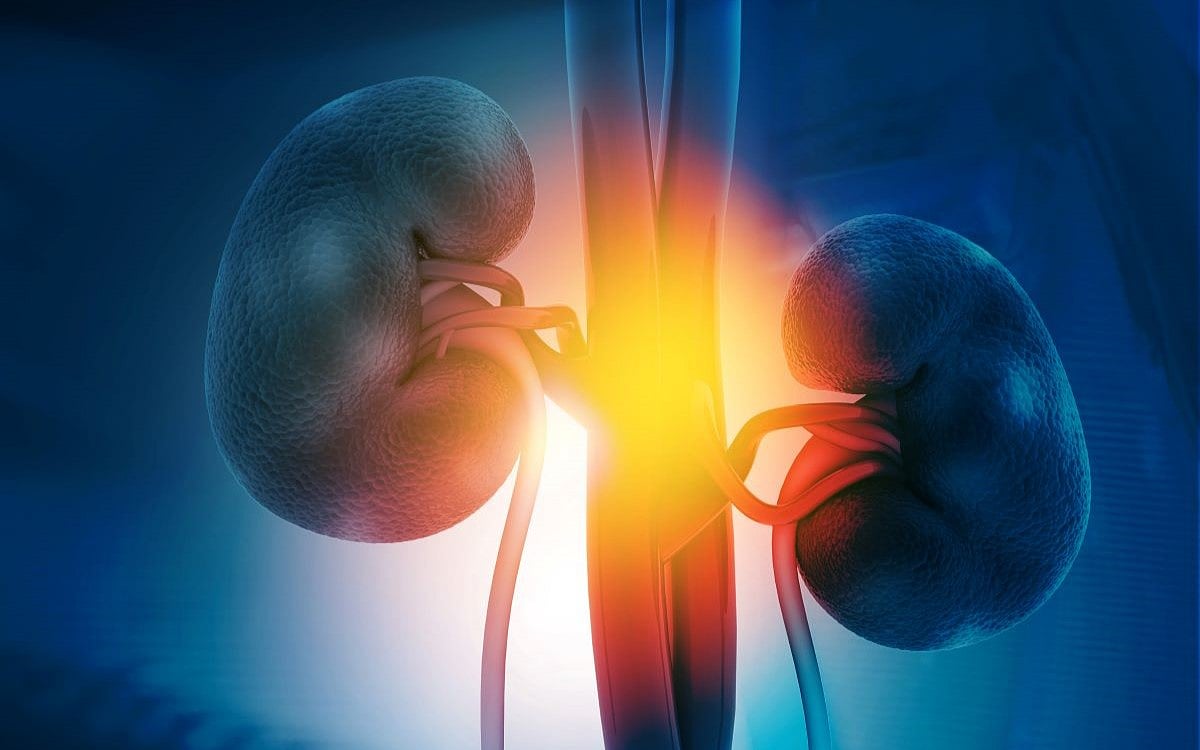Get Healthy!

- Ernie Mundell
- Posted November 26, 2024
Study Finds GLP-1 Meds Can Also Help the Kidneys
The potential health benefits of GLP-1 diabetes and weight loss meds keep piling up: New research shows they may also shield your kidneys from harm.
In the largest study to date on the effects of the drugs on the kidneys, researchers found GLP-1s help the protect the organs in people with or without diabetes.
GLP-1s include blockbuster diabetes medicines such as Ozempic and its weight-loss spinoff, Wegovy.
“This is the first study to show a clear benefit of GLP-1 receptor agonists on kidney failure or end-stage kidney disease," said study lead author Dr. Sunil Badve, a kidney specialist and professorial fellow at The George Institute for Global Health in Sydney, Australia.
The study suggests that GLP-1s "have a key role in kidney-protective and heart-protective treatment for patients with common medical conditions like type 2 diabetes, overweight or obesity with cardiovascular disease, or chronic kidney disease," he said in a news release.
The research was published Nov. 25 in The Lancet Diabetes & Endocrinology.
Badve and colleagues conducted what's called a meta-analysis -- a large review of data from multiple studies, in this case 11 large-scale clinical trials of GLP-1s involving more than 85,000 people in all.
Close to 68,000 had type 2 diabetes, while just over 17,600 were overweight or obese with heart disease but did not have type 2 diabetes.
The GLP-1 medicines taken during the trials included semaglutide (Ozempic or Wegovy), dulaglutide (Trulicity) and liraglutide (Victoza).
Kidney health improved among people taking the drugs, the study found.
For example, use of a GLP-1 cut a patient's odds of kidney failure by 16% and a worsening of their kidney function by 22%, Budve and team reported. These improvements were defined as "a drop in estimated glomerular filtration rate -- a measure of how much blood the kidneys filter clean every minute -- of at least 50%," according to the news release.
“These results are particularly important for patients with chronic kidney disease," Badve said. "It is a progressive condition eventually leading to kidney failure requiring dialysis or kidney transplantation and is associated with premature death, mostly from heart disease. It has a significant impact on patients’ quality of life and incurs substantial healthcare costs."
People's hearts benefited, too: Use of a GLP-1 cut a person's odds for a combination outcome of heart-related death, non-fatal heart attacks and non-fatal strokes by 14%, compared to folks taking a placebo.
In fact, GLP-1 use was linked to a 13% reduction in a person's risk of premature death from any cause, the research showed.
"Our study will have a major impact on clinical guidelines for the management of chronic kidney disease and cardiovascular disease in people with and without diabetes," said study co-author Dr. Vlado Perkovic, also a professorial fellow at The George Institute.
More information
Find out more about how GLP-1 medicines work at the Cleveland Clinic.
SOURCE: George Institute for Global Health, news release, Nov. 25, 2024




